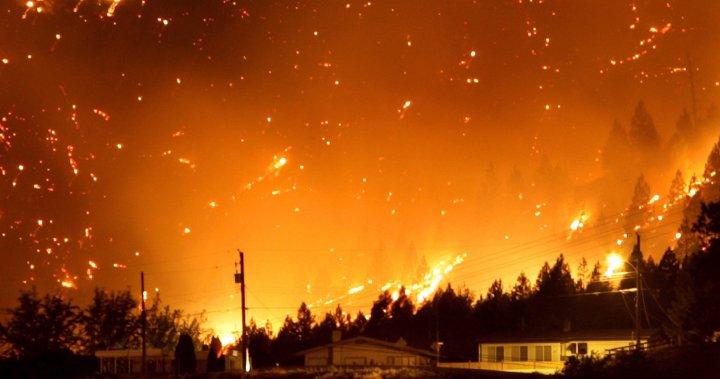Canada’s wildfire season is underway, and as firefighters battle the blazes, some provinces are considering expanding their strategies to include nighttime firefighting operations. While this practice is common in countries like Australia and the United States, it remains rare in Canada. However, experts believe that firefighting at night can have advantages such as lower temperatures, higher humidity, and reduced winds which can help in controlling the spread of fires. Alberta and BC have already started implementing nighttime firefighting operations, with Alberta partnering with B.C.-based aviation company Talon Helicopters to utilize night-vision helicopters in their efforts.
Jarrett Lunn, chief pilot at Talon Helicopters, highlighted the benefits of nighttime firefighting, including the ability to attack fires immediately when they start, preventing overnight spread. However, despite its effectiveness, nighttime firefighting is still rare in Canada due to the challenges of flying at night and the logistical and financial difficulties of adapting helicopters for night-vision firefighting. Provinces would need to set up nighttime operations, including aircraft dispatchers, flight following services, aircrew, and fuel availability at night. Pilot safety is also a major concern when considering nighttime firefighting, as it introduces additional safety considerations to an already dangerous job.
The federal government is exploring the possibility of using drones to fight wildfires at night, with one company currently conducting research on using drone technology for firefighting. This could potentially revolutionize wildfire fighting by being able to combat fires at night. The warmest winter on record has led to an early start to wildfire season in Canada, with firefighters in B.C. and Alberta working tirelessly to combat the blazes. In Fort Nelson, B.C., four homes have been destroyed by the Parker Lake wildfire, while the wildfire near Fort McMurray in northeastern Alberta is now classified as “being held,” with no growth reported on Sunday.
BC Wildfire Service confirmed that overnight fire spread events have been increasing throughout North America, leading to the use of nighttime operations when necessary. Melissa Story, spokesperson for Alberta Wildfire, mentioned that they are leveraging night operations with additional aircraft added to their fleet. Challenges to nighttime firefighting in Canada include the need to fully modify helicopters for night-vision compatibility, as well as setting up nighttime operations including dispatchers, flight services, and fuel availability. Despite these challenges, the potential benefits of nighttime firefighting in controlling wildfire spread and ensuring timely response make it a strategy worth exploring further in Canada.













